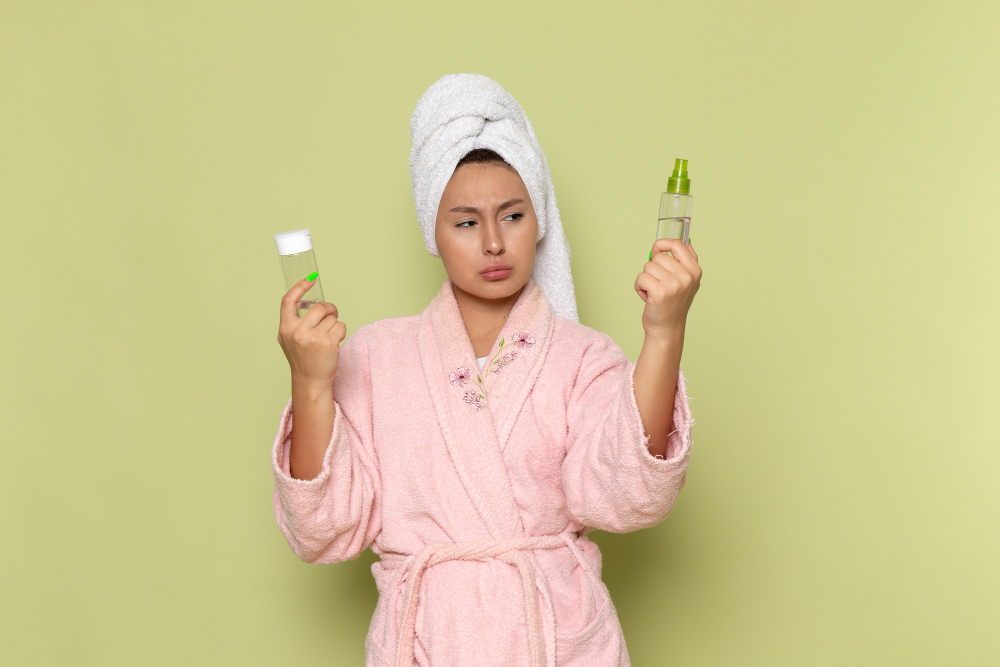
Skincare Ingredients to Avoid: Common Irritants and Sensitivities for Women’s Skin
The vast array of skincare products available can be overwhelming, but not all ingredients are created equal. Some common skincare ingredients have the potential to irritate or sensitize the skin, leading to redness, inflammation, and other adverse reactions. By being mindful of these ingredients and avoiding products that contain them, women can protect their skin and maintain a healthy, radiant complexion. Let’s delve into some of the most common irritants and sensitivities found in skincare products and explore why they’re best left on the shelf.
Choosing the Perfect Lipstick Shades
Pale skin requires special care. Pale skin has a delicate beauty that should be emphasized with perfect shades of lipstick. When choosing lipstick pale skin, it’s important to choose colors that complement your fair complexion without overwhelming it. Soft, rosy pinks, peachy nudes and soft mauve are perfect choices for everyday wear, adding a touch of warmth and color to your lips without looking too bright. For a bolder statement, consider rich berry tones or classic blue-tinged reds that look beautiful on pale skin, creating a striking contrast that accentuates your natural features with lipstick pale skin.
A Scented Dilemma
Fragrances may add a pleasant scent to skincare products, but they can also be a common cause of irritation and sensitivity, particularly for those with sensitive skin. Synthetic fragrances, in particular, may contain a cocktail of potentially irritating chemicals that can trigger allergic reactions, redness, and inflammation. To avoid irritation, opt for fragrance-free or hypoallergenic skincare products, especially if you have sensitive or reactive skin. Natural fragrances derived from essential oils may be less likely to cause irritation, but it’s essential to patch-test new products before applying them to your face.
The Double-Edged Sword
Alcohol is a common ingredient in skincare products, prized for its ability to help products absorb quickly and feel lightweight on the skin. However, alcohol can also be drying and irritating, particularly for those with dry or sensitive skin. Denatured alcohol, in particular, can strip the skin of its natural oils, leading to dryness, flakiness, and even inflammation. Look for alcohol-free or low-alcohol formulations, especially in toners and astringents, and opt for hydrating ingredients like glycerin and hyaluronic acid to maintain moisture balance in the skin.
The Foamy Culprit
Sulfates are surfactants commonly found in cleansers and foaming agents, prized for their ability to create lather and remove dirt and oil from the skin. However, sulfates can also be harsh and stripping, particularly for those with dry or sensitive skin. Sodium lauryl sulfate (SLS) and sodium laureth sulfate (SLES) are two common sulfates that can disrupt the skin’s natural barrier, leading to dryness, irritation, and even contact dermatitis. Look for sulfate-free cleansers and body washes, especially if you have dry or sensitive skin, and opt for gentle, non-foaming formulas that won’t strip away natural oils.
The Preservative Predicament
Parabens are a group of synthetic preservatives commonly used in skincare and cosmetic products to prevent bacterial growth and extend shelf life. However, parabens have come under scrutiny in recent years due to concerns about their potential health risks, including endocrine disruption and allergic reactions. While research on the safety of parabens is ongoing, many people choose to avoid products containing these preservatives, especially if they have sensitive or reactive skin. Look for paraben-free alternatives when shopping for skincare products, and opt for products preserved with natural alternatives like vitamin E or grapefruit seed extract.
The Rainbow of Risks
Artificial colors are often used in skincare and cosmetic products to enhance their appearance and appeal. However, these synthetic dyes can be derived from coal tar or petroleum and may contain potential allergens and irritants that can cause skin reactions, particularly for those with sensitive skin. To minimize the risk of irritation, opt for products that use natural colorants derived from fruits, vegetables, and minerals, or choose products labeled as dye-free or color-free. When in doubt, patch-test new products before applying them to your face to ensure they won’t cause any adverse reactions.
Navigating the Skincare Minefield
Navigating the world of skincare can be a daunting task, especially with so many products and ingredients to choose from. However, by being mindful of common irritants and sensitivities and choosing products formulated with gentle, skin-friendly ingredients, you can protect your skin and maintain a healthy, radiant complexion. Whether you have sensitive, dry, or acne-prone skin, there are plenty of options available that will nourish and protect your skin without causing irritation or adverse reactions. So take the time to educate yourself about skincare ingredients, listen to your skin’s needs, and choose products that work best for you. Your skin will thank you for it!
